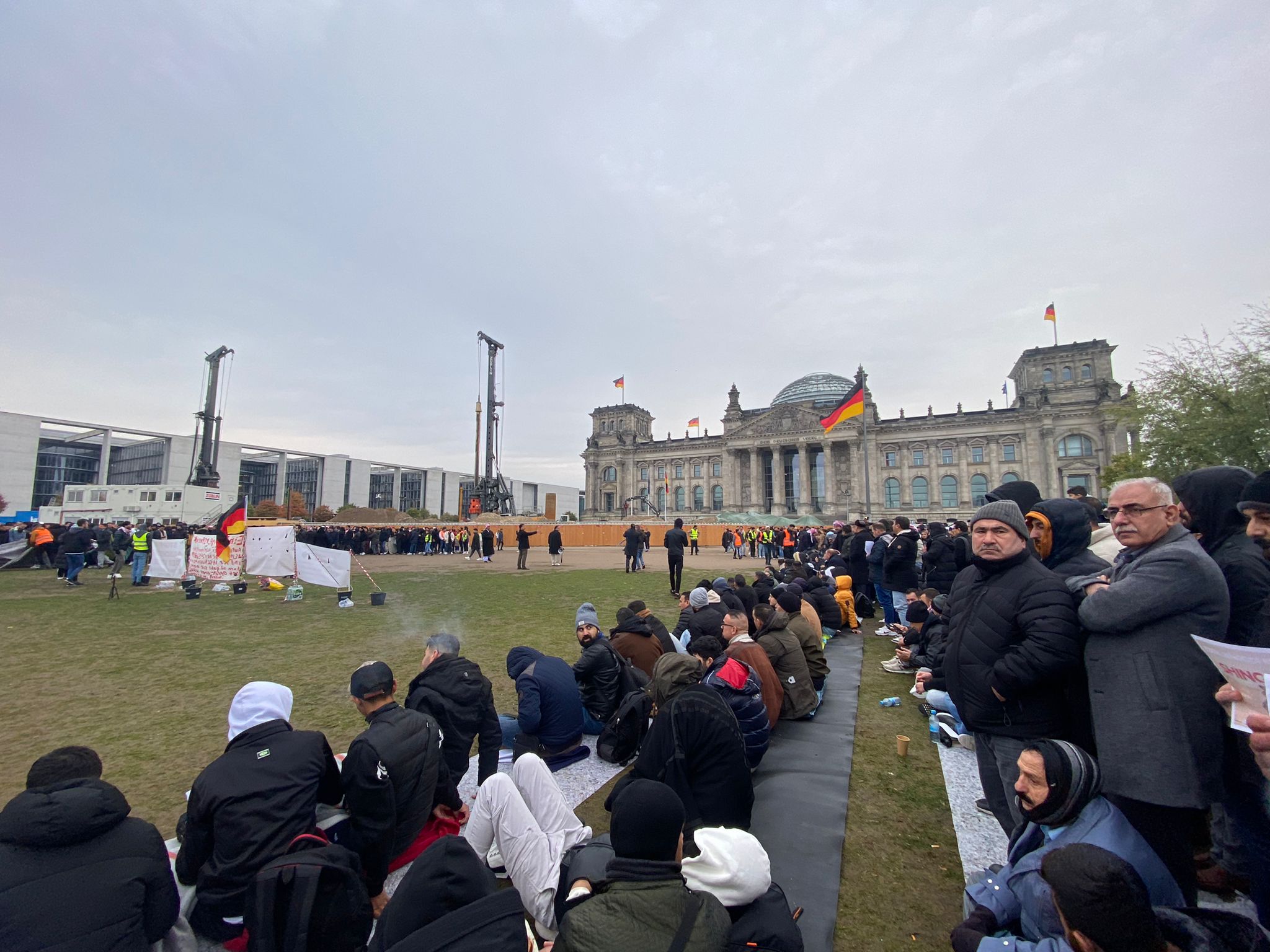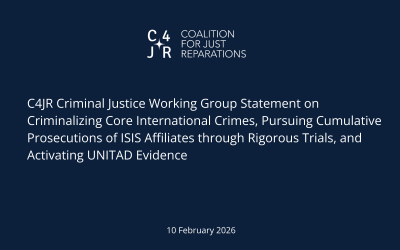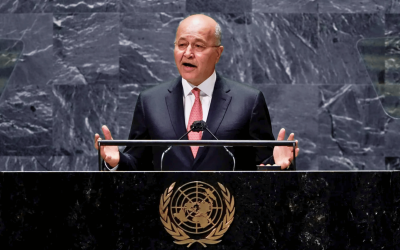Alannah Travers
In Berlin, protesters are calling against the forced deportation of Yazidis in Germany.
In January of this year, the German Bundestag voted unanimously on a motion to recognise the Yazidi genocide, which rightly recognised the crimes perpetrated against the Yazidi community by ISIL as genocide. The motion urged Germany’s judicial system to pursue more criminal cases against ISIL suspects, and for the government to increase financial support for the collection of evidence of such crimes in Iraq, as well as to support the rebuilding of Yazidi communities; concepts included in the Yazidi Survivors Law (YSL).
Despite this important and welcome acknowledgment, Yazidis who have sought safety in Germany are now facing the threat of deportation back to Iraq. Meanwhile in Iraq, the UNITAD mandate for investigation into ISIL crimes in Iraq is set to wind-down by September 2024, after Iraq requested the mandate not be extended beyond this period. Hundreds of Yazidis have protested against the deportations in front of the parliament building in Berlin since October 9, some on hunger strike, as they call for the protection of their community by opposing such deportations, amid the situation in Iraq, which raises questions of the meaning of a recognition of genocide, and the importance of continuing to support the implementation of the YSL in Iraq.
“The Federal Republic of Germany has sent a strong political signal by officially recognising the genocide against the Yazidis,” says Düzen Tekkal, founder of C4JR member, HÁWAR.help, who created the online petition addressed to Nancy Faeser, Germany’s Federal Minister of the Interior (Bundesinnenministerin) calling for an end to the Yazidi deportations. “Yazidis in Germany feel a recurring sense of powerlessness because they once again have no safe place for themselves due to the deportations to Iraq,” the open letter reads. “The region is far from safe for Yazidis.”
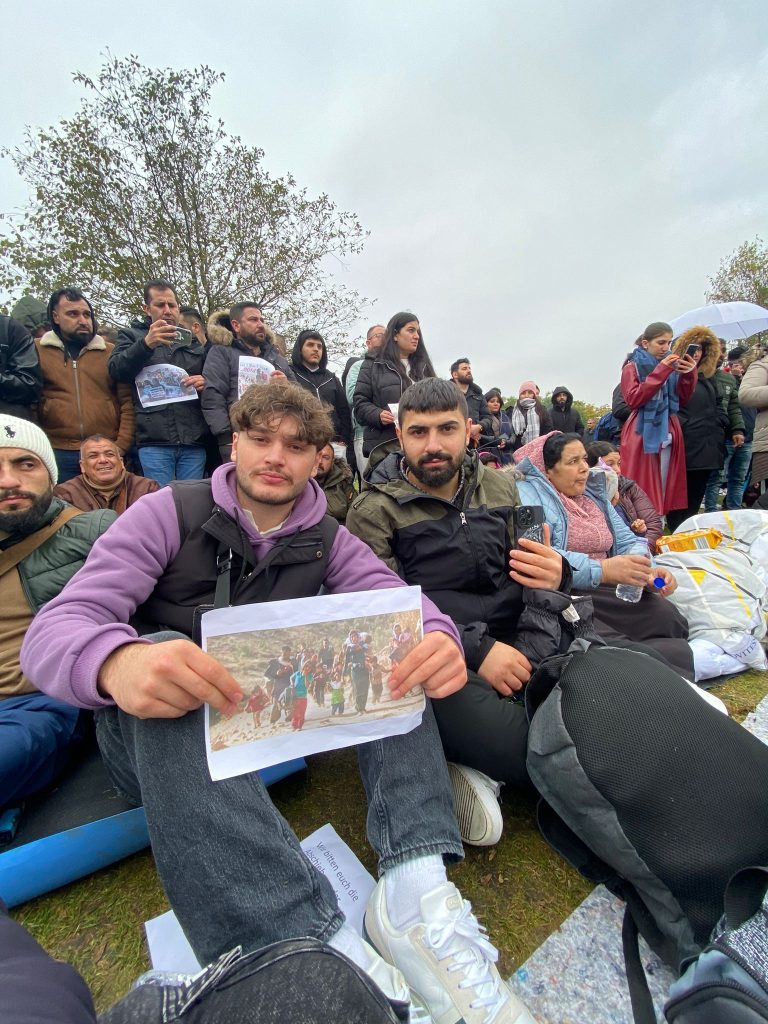
According to Die Tageszeitung, since the defeat of ISIL, the protection rate for asylum decisions has fallen rapidly – “from over 90 percent in 2017 to just under 49 percent in 2022” – although the newspaper acknowledges that Germany has for a long time only deported back to Iraq convicted criminals and other individuals deemed dangerous by authorities.
“What is now essential is the implementation of the demands that our human rights organisation HÁWAR.help has made. Germany has spearheaded the legal processing of the genocide, something which we must maintain at all costs,” Tekkal added in a separate statement to C4JR as the protests reached their peak. “Survivors must be more involved in this process and their psychosocial care must be further expanded both in Germany and in Iraq. We are also advocating for a pragmatic implementation of the Yazidi Survivors Law,” Tekkal continues, raising Iraq’s own legislation – passed in March 2021 – designed to provide comprehensive reparations to survivors of ISIL crimes.
Tekkal and others are calling for a special federal quota for the intake of Yazidis in Germany, along with a suspension of deportations. “We must never lose sight of the human rights crimes that this community was subject to, but continue to look and fight together. This is about recognition, coming to terms with the past, and justice,” she says. C4JR agrees that a recognition of genocide requires more far than words; it must encompass action to support the rebuilding of communities in Iraq, and provide for the healing of survivors and their communities, not forcibly sending anyone back to an unstable situation.
“An independent body should decide whether an asylum seeker is a refugee within the meaning of the UN Convention Relating to the Status of Refugees which in Article 1 stipulates that refugee is: “someone who is unable or unwilling to return to their country of origin owing to a well-founded fear of being persecuted for reasons of race, religion, nationality, membership of a particular social group, or political opinion,”” Dr. Bojan Gavrilovic, Head of Program for Rights and Justice at Jiyan Foundation, says. “The key here is the concept of persecution, which, in this context, has a wider meaning than the one given to it in standard language, which implies physical persecution.”
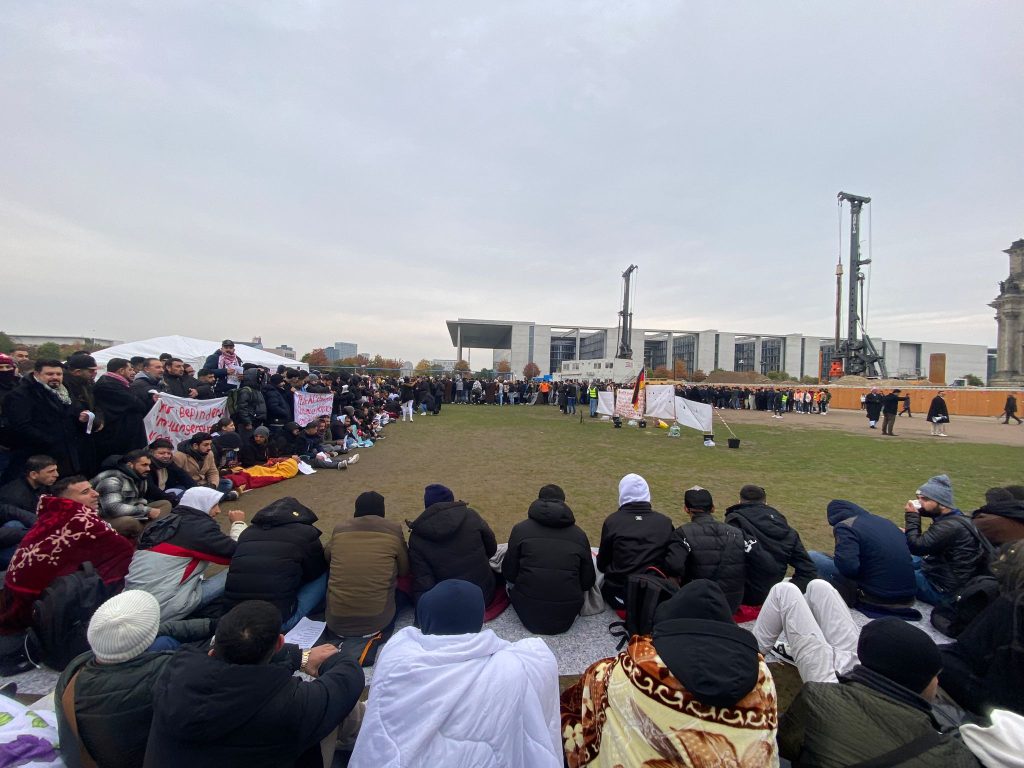
According to Gavrilovic, the UN Refugee Convention employs the term “well-founded fear of persecution” which, in addition to the objective element, also includes a subjective element, such as fear as well as serious violations of basic human rights, such as threats to the right to life, violations of the prohibition of torture, and other ill-treatment or slavery which certainly constitute persecution. “Nevertheless, different forms of discrimination of certain social groups manifested through, for example, the inability to access education, health and social care, courts, etc., viewed together, can reach the threshold of persecution, especially if they are accompanied by a feeling of fear and insecurity,” he adds.
“This is again determined in each specific case through the assessment of the objective circumstances in the country of origin and the subjective element,” Gavrilovic continues – for example, in this case, the fear of the asylum seeker. “It seems clear, therefore, that Yazidis, a large number of whom still languish in KRI IDP camps (with scarce access to healthcare, education, social care and so on) are unable to return to their homeland of Sinjar due to security concerns, and who, in addition to a long history of persecution, have a living memory of genocide (committed through mass killings, enslavement and conflict-related sexual violence), meet the UN Refugee Convention definition.”
The unanimous motion passed by the Bundestag in January 2023 stated that a “safe return” was hardly possible for Yazidis due to the “highly volatile security situation.” Deportations contradict this view. Nine years after the Yazidi genocide, Iraq is yet to offer a safe home from which to thrive, and international attention must be focused on what more it can do to bring about positive change in Iraq, including the importance of investing in the YSL application process and point of delivery.
